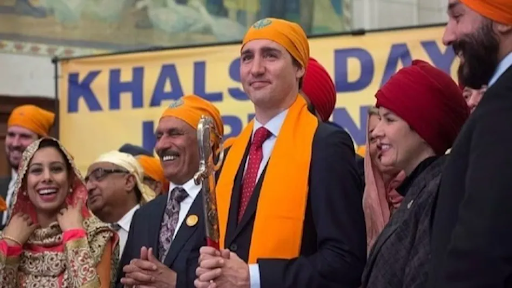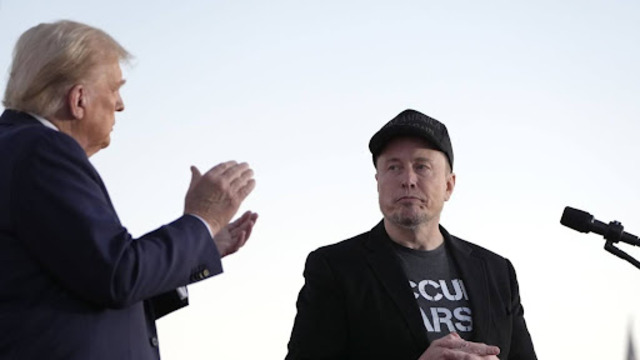
Photo from Business today
During a Khalsa Day event in Toronto, pro-Khalistan slogans were raised in the presence of Canadian Prime Minister Justin Trudeau. The incident occurred as Trudeau attended the event, which was organized to celebrate Sikhism's founding. Pro-Khalistan sentiments have long been a contentious issue within the Sikh community, with some advocating for an independent Sikh state in Punjab, India.
The chanting of pro-Khalistan slogans during the event drew attention and raised concerns about its implications for diplomatic relations between Canada and India. The Canadian government has been in a delicate position regarding the issue, aiming to balance its support for the Sikh community's rights while maintaining strong ties with India, a key trading partner.
Trudeau's attendance at the Khalsa Day event has sparked controversy in the past, with critics accusing him of pandering to certain Sikh constituencies in Canada for political gain. However, Trudeau has defended his participation in such events as a way to show support for Canada's diverse communities and their cultural celebrations.
The presence of pro-Khalistan sentiments at the Khalsa Day event underscores the ongoing debate surrounding Sikh separatism and its impact on both domestic and international affairs. While some Sikh Canadians advocate for greater autonomy or independence for Punjab, others emphasize the importance of unity and cooperation within India.
The incident has reignited discussions about the complexities of identity politics and diaspora communities' engagement with homeland issues. For many Sikh Canadians, the question of Khalistan represents a deeply personal and emotive issue tied to historical grievances and struggles for self-determination.
In response to the incident, Trudeau's office issued a statement reaffirming Canada's commitment to upholding the principles of free speech and peaceful assembly. The statement emphasized the importance of respectful dialogue and constructive engagement in addressing sensitive issues within diverse communities.
The incident comes amid ongoing tensions between Canada and India on various fronts, including trade disputes, human rights concerns, and diplomatic strains. The Canadian government has sought to navigate these challenges while maintaining its commitment to promoting human rights and democratic values globally.
While the chanting of pro-Khalistan slogans at the Khalsa Day event may have sparked controversy, it also highlights the complexities of multiculturalism and diversity in Canada. As a country built on immigration and pluralism, Canada continues to grapple with how to balance competing interests and perspectives within its diverse society.
Moving forward, the incident may prompt further discussions and reflections on the role of diaspora communities in shaping domestic and international politics. It also underscores the importance of fostering dialogue and understanding among different groups to address contentious issues and promote social cohesion.
Overall, the incident serves as a reminder of the challenges and opportunities inherent in Canada's multicultural fabric, and the need for ongoing efforts to promote inclusivity, tolerance, and respect for diverse perspectives.















